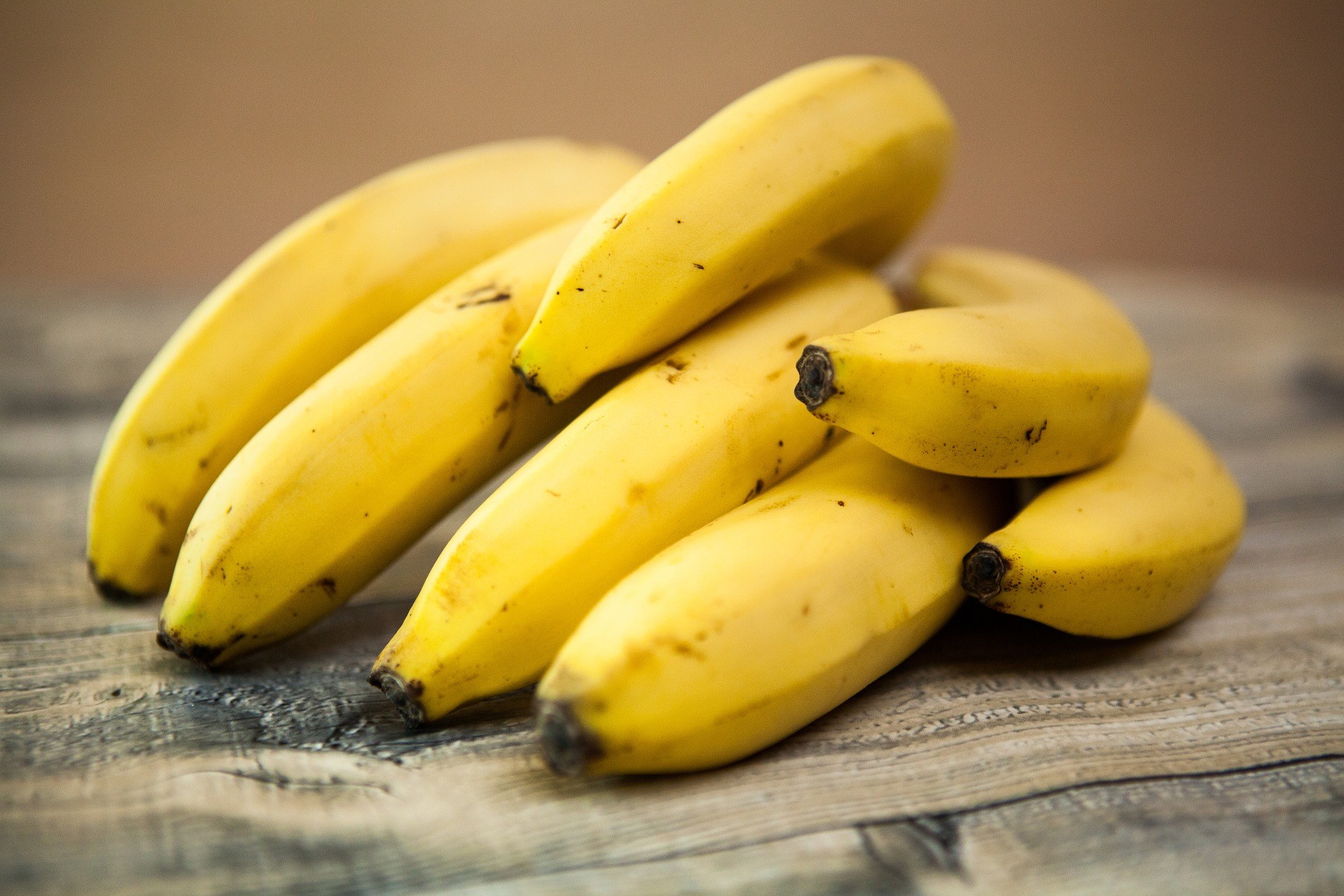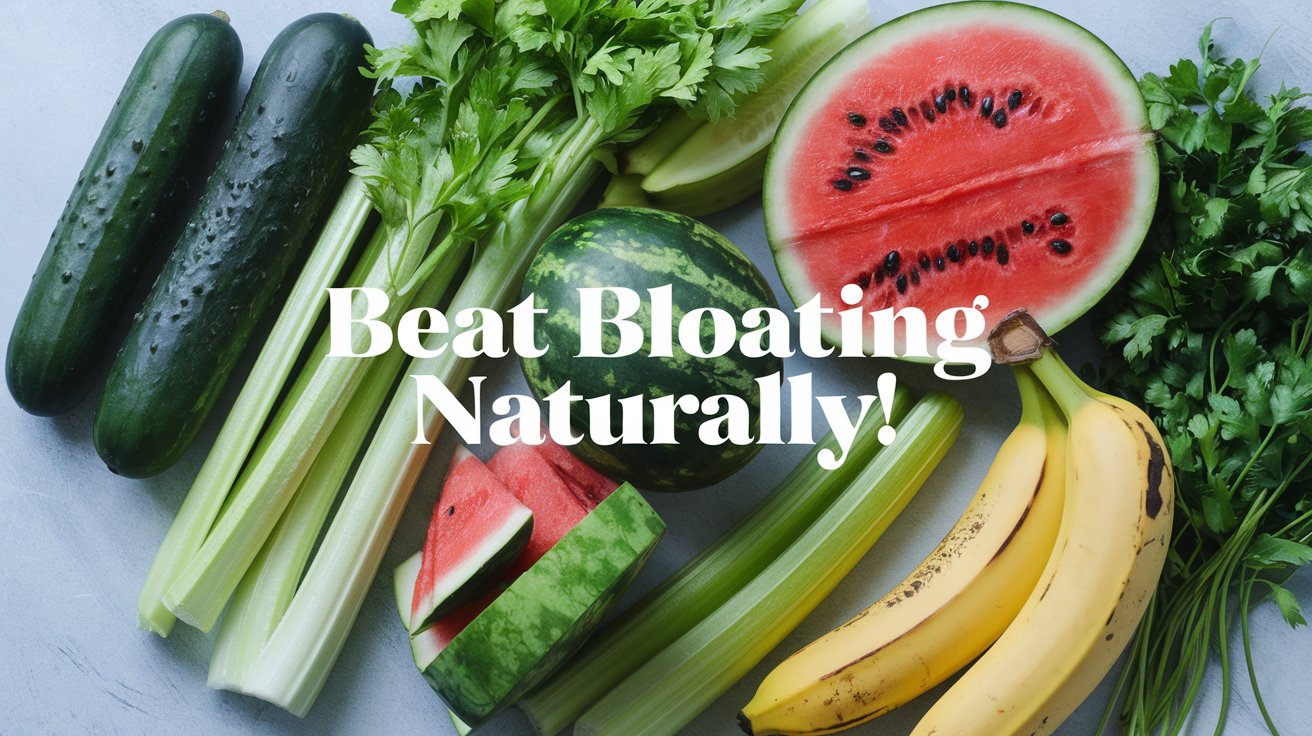Bloating and fluid retention are common problems caused by a range of factors, including high sodium intake, hormonal changes, and a sedentary lifestyle. If you’re looking for natural ways to alleviate these issues, incorporating vegetarian foods into your diet can significantly help. These foods promote digestion, act as natural diuretics, and reduce inflammation. Below, we outline nine powerful vegetarian foods that can help combat fluid retention and bloating effectively.
1. Cucumber: A Natural Hydrating Diuretic

Cucumbers are loaded with water, which helps flush excess sodium and toxins from the body. They are also rich in silica and antioxidants like quercetin, which combat inflammation. Cucumbers contain potassium, which helps balance fluid levels and reduce bloating caused by sodium overload.
How to Include Cucumber in Your Diet:
- Add cucumber slices to your water for a refreshing detox drink.
- Make a chilled cucumber salad with a dash of lemon and mint.
- Snack on cucumber sticks with hummus.
2. Celery: The Ultimate Water Retention Fighter

Celery contains high amounts of water and potassium, making it an excellent diuretic. It helps stimulate the kidneys, which in turn reduces fluid buildup. The fiber content in celery also aids digestion and prevents constipation, which can contribute to bloating.
Ways to Enjoy Celery:
- Add chopped celery to soups or stews.
- Make a green juice with celery, apple, and ginger.
- Enjoy celery sticks with peanut butter for a nutritious snack.
3. Watermelon: Hydration and Potassium in Every Bite

Watermelon is made up of over 90% water and is packed with potassium, a mineral that counters sodium. This combination helps the body flush out excess fluids and reduces puffiness. Watermelon also contains amino acids like citrulline, which aid in eliminating waste through the kidneys.
Incorporate Watermelon Into Your Meals:
- Enjoy chilled watermelon cubes on hot days.
- Blend watermelon with lime for a hydrating smoothie.
- Make a watermelon and feta salad with fresh mint.
4. Parsley: A Potent Herbal Diuretic

Parsley is a traditional remedy for bloating and fluid retention due to its diuretic properties. It contains compounds like apigenin and myristicin, which encourage kidney function and help remove excess fluids. Additionally, parsley is rich in antioxidants and vitamin C, which reduce inflammation.
Add Parsley to Your Diet:
- Garnish soups and salads with fresh parsley.
- Brew a cup of parsley tea by steeping fresh leaves in hot water.
- Blend parsley into your green smoothies.
5. Bananas: Potassium-Rich Bloat Busters

Bananas are renowned for their potassium content, which helps regulate fluid balance by counteracting the effects of sodium. The fiber in bananas also promotes healthy digestion and prevents bloating caused by constipation.
Quick Banana Fixes:
- Add banana slices to your morning oatmeal.
- Make a banana smoothie with almond milk and flax seeds.
- Enjoy a banana as a post-workout snack to replenish electrolytes.
6. Asparagus: Nature’s Detoxifier

Asparagus is known for its powerful diuretic properties, thanks to the amino acid asparagine. This compound helps the body eliminate excess fluids and salts. Asparagus also contains prebiotic fiber, which supports gut health and alleviates bloating.
Delicious Ways to Eat Asparagus:
- Grill asparagus with olive oil and lemon juice.
- Add steamed asparagus to salads or pasta dishes.
- Make a creamy asparagus soup with herbs.
7. Ginger: Anti-Inflammatory and Digestive Aid

Ginger acts as a natural anti-inflammatory and digestive aid, making it excellent for reducing bloating and fluid retention. Its active compound, gingerol, helps in breaking down food and speeding up digestion, reducing gas buildup. Know more https://www.healthline.com/nutrition/foods-that-help-with-bloating
How to Use Ginger:
- Brew a cup of ginger tea with honey and lemon.
- Add fresh ginger to stir-fries or curries.
- Blend ginger into smoothies for a digestive boost.
8. Lettuce: Low-Calorie Hydrating Leaf
Lettuce, especially varieties like iceberg and romaine, is high in water content, which helps flush out excess sodium. The low-calorie content of lettuce also supports weight management, a factor linked to bloating and fluid retention.
Incorporate Lettuce Daily:
- Prepare a large, crunchy salad with mixed greens.
- Add lettuce to sandwiches or wraps.
- Use lettuce leaves as low-carb taco shells.
9. Pineapple: Enzyme-Rich for Digestion
Pineapple contains bromelain, an enzyme that helps break down protein and aids digestion. This enzyme also has anti-inflammatory properties that can reduce bloating and water retention. The high water content of pineapple further supports fluid balance.
Enjoy Pineapple:
- Add pineapple chunks to fruit salads.
- Make a tropical smoothie with pineapple and coconut water.
- Grill pineapple slices for a sweet, caramelized treat.
Conclusion: Balance Your Diet to Beat Bloating
Incorporating these nine vegetarian foods into your daily routine can significantly alleviate bloating and fluid retention. These natural remedies help maintain a healthy fluid balance by promoting hydration, balancing sodium, and aiding digestion. Prioritize a balanced diet, stay hydrated, and include regular physical activity to complement these dietary changes for lasting relief from bloating and discomfort.



 By
By

















